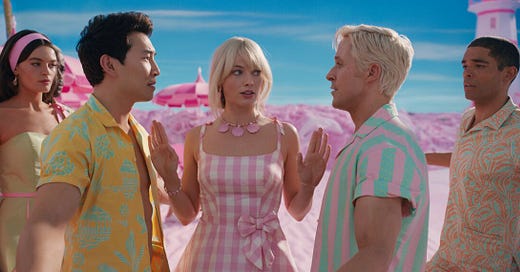Watching
Oppenheimer (2023)
In her short story My Heart Belongs to Bertie, Helen DeWitt bemoans, in an author’s note, the paucity of “fiction that shows the way mathematicians think.” Her story, which includes many inserts of probability graphs to visually demonstrate this, is her attempt to think through the problem of thinking mathematically, and why so…




